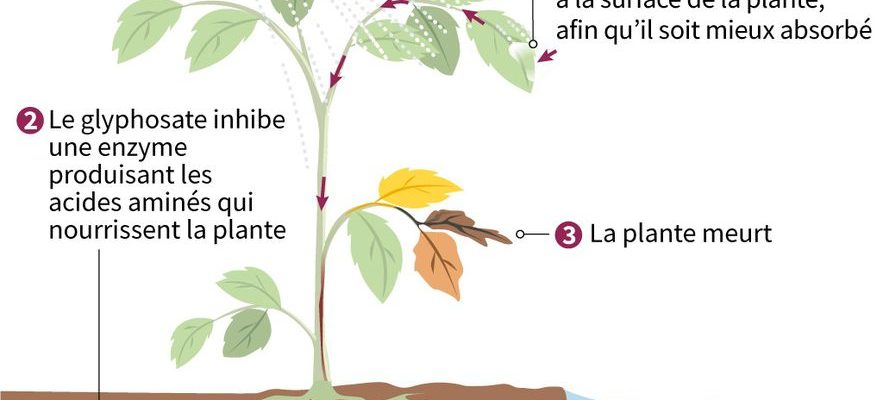This is a highly anticipated election in Europe. And France decided to abstain during the vote on Brussels’ proposal to renew the authorization of glyphosate in the European Union for ten years, making it a priori impossible to obtain the qualified majority required to validate it, French Minister of Agriculture Marc Fesneau announced to AFP.
“We have said, from the start, that the Commission’s proposal as it is formulated, 10 years without conditions, did not correspond to the trajectory” decided by France for several years, which is to “restrict the uses there where there are alternatives to ensure that there is less glyphosate”, a controversial herbicide, he explained. However, it may be authorized where there are no technically or economically viable solutions, such as mountainous areas for example, he recalled.
Glyphosate: a controversial herbicide
© / afp.com/Laurence SAUBADU, Emma BONNEM
Berlin should abstain
For the text proposed by the Commission in September to be adopted, it must obtain a qualified majority – i.e. 15 states out of 27, representing at least 65% of the European population. However, Austria and Luxembourg announced that they would vote against, and the Netherlands and Belgium that they would abstain.
Germany announced on Thursday that it would not support the reauthorization of glyphosate either. According to Marc Fesneau, Berlin finally decided to abstain. If no qualified majority in favor of the text emerges on Friday, another vote will take place in November.
If there is still not a sufficient majority to support the proposal by the expiration of the current authorization on December 15, the Commission will be able to decide alone to extend the green light for glyphosate because only a qualified majority of States opposed to the text can block it. “We will fight to ensure that everyone is on (our) line,” underlined Marc Fesneau.
The question of the effects of glyphosate on health has never been resolved, in the absence of scientific consensus on its possible dangerousness.
